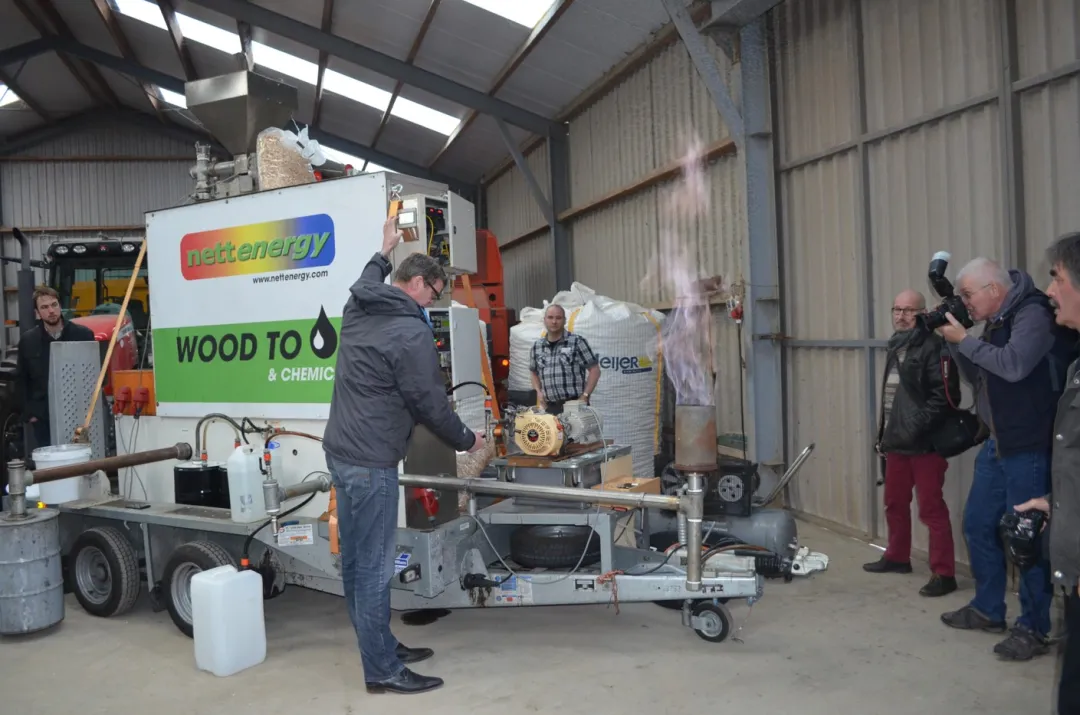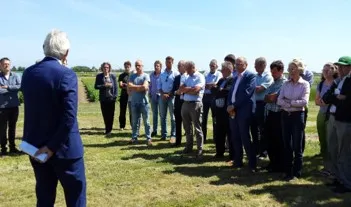Summary
Discover the BioBased Innovations Garden in the Netherlands, a demonstration farm which addresses the growing need for sustainable agricultural practices that enhance soil management and crop resilience. It also offers space and possibilities to develop new value chains and applications within the biobased economy.
Resources
Founded in 2014 at the Agrarian Innovation and Knowledge Centre Rusthoeve in the Netherlands, the BioBased Innovations Garden meets the growing need for sustainable agricultural practices that enhance soil management and crop resilience. As a demonstration farm, it tests various crops as raw materials for biobased products, and experiments with more sustainable ways of growing crops. The Garden is also a platform for different stakeholders to develop innovative value chains and applications within the biobased economy.
In response to increasing pressure on agricultural systems from climate change and resource limitations, the Garden demonstrates how biobased innovations can transform farming into a more sustainable and competitive sector. The cultivation of biobased crops reduces dependency on fossil-based resources.
Over the past decade, the Biobased Innovations Garden has cultivated more than 100 different crops, utilising their products and by-products in various applications with potential in the biobased economy. For instance, a by-product from growing tansy is used as an insecticide, purpurin from madder plant roots serves as a cobalt replacement in batteries, and fibres from hemp, flax and straw are used in insulation. Some products, such as mint and solanine, even find applications in cosmetics.
The BioBased Innovations Garden acts as a hub and demonstration farm where agricultural entrepreneurs, knowledge institutes, and industries such as construction and chemistry collaborate to foster innovation and experiment with new biobased solutions. It supports regional value chain development, helping farmers become more resilient to rising energy costs by reducing their dependency on fossil fuels.
Through its experiments, the BioBased Innovations Garden has discovered solutions for a wide range of agricultural challenges. These solutions include improved soil health, enhanced crop resilience and a reduction in chemical inputs. Additionally, the Garden raises awareness and disseminates knowledge by organising workshops for farmers and local stakeholders and developing educational materials on biobased practices. Participants involved in the experimental area of the Garden have provided valuable insights into challenges such as adaptation resistance, high initial costs and investments, technical difficulties, regulatory obstacles, climate variability and scalability issues.
As part of the biobased economy, the BioBased Innovations Garden identifies opportunities for greening fertilisers, developing crop protection agents of natural origin, and producing ingredients such as minerals, fatty acids, proteins, fibres, and sugars. It also supports protein transition. According to the project partners, further crop selection linked to specific applications could lead to additional research on breeding techniques and cultivation methods, enhancing the suitability of these plants as crops for long-term use in the biobased economy.
Background information
The BioBased Innovations Garden participated in the EU CAP Network cross-visit on "Sustainable agriculture through biobased solutions," which took place on 12 and 13 March 2024 in the Netherlands. The cross-visit report was recently published.
Between 3 June and 7 June 2025, three new cross-visits for Operational Groups will focus on biobased materials, regenerative agriculture, and biodiversity.
Find out more about EU CAP Network cross-visits for Operational Groups. These cross-visits foster in-depth, transnational exchanges of knowledge by connecting EIP-AGRI Operational Groups from different Member States that are active in the same field of work.
Cor van Oers


